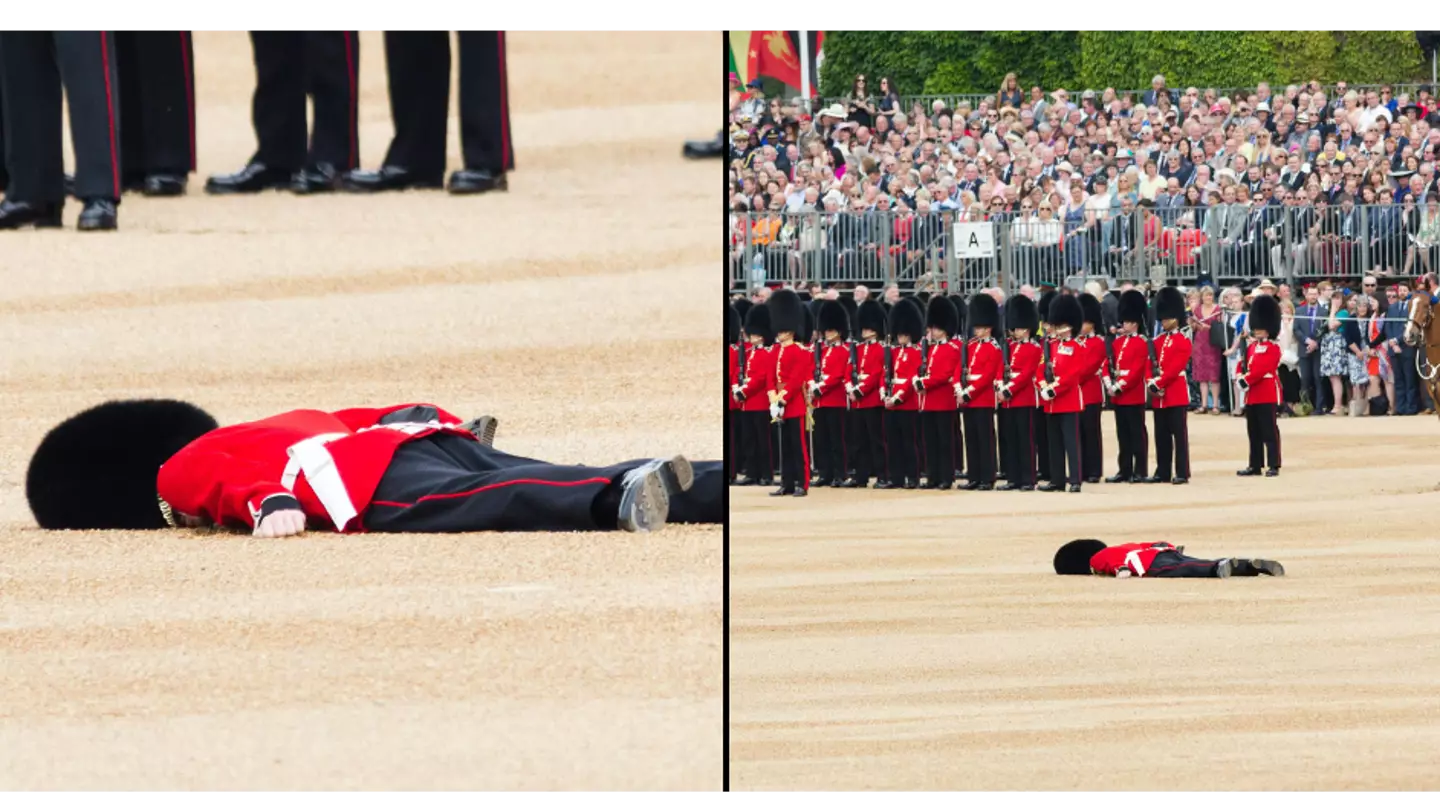
It's no secret that the King's Guard can and do faint, but have you ever wondered why they always faint facing forwards?
Well, wonder no more, as all has recently been revealed on TikTok, where social media users were taught that the King's Guard are actually told how to faint.
This is done ahead of time because it is quite a common occurrence for the King's Guard to faint, and they are at particular risk during the summer.
Advert
"As soon as they feel they're about to faint, they need to get down on one knee and face plant the floor," revealed TikToker Sherif El Sahly in a video that was posted yesterday (11 March).
"The reason they do that is because of the way that it looks and it's got a special name called fainting to attention."
The TikToker's claim is substantiated by Major Dai Bevan, who led the 101-strong Guard of Honour from the Welsh Guards, at Prince William and the now-Princess of Wales' 2011 wedding.
"You have to faint to attention," he said."It will probably involve a broken nose and a whole lot of missing teeth."

While there are obviously incidents where the guards fall over on their backs, it's seen as a dishonourable thing to do and therefore to be avoided at all costs.
The guards are told that they can reduce their chances of fainting backwards by loosening the leather band of their bearskin.
This is because their heads, believe it or not, expand in the heat, so if the strap is too tight it's no wonder they end up fainting.
They are also advised to drink as much as five litres of water to stay well hydrated, despite the fact that they cannot leave their positions.
Guardsman Bryce Pounder said this can lead to some very pained guards.
"You can hear lads groaning behind you," he said. "You might get a few little puddles."

Sergeant-Major Mott, who was a member of the then Queen's Guard at Princess Diana's wedding to the now king, said he had a specific routine to stop himself from fainting.
This involved starting the day with a five-mile run, a solid breakfast, toe wiggling and calf-tensing.
"If you are resting on your heels the blood doesn't flow back to the brain," he said.
Although, it turns out that if the worst comes to the worst, instead of falling flat on their faces, guards can also 'wedge' up one of their number who has fainted to save them the embarrassment and likely pain of falling over face first.
Topics: News
